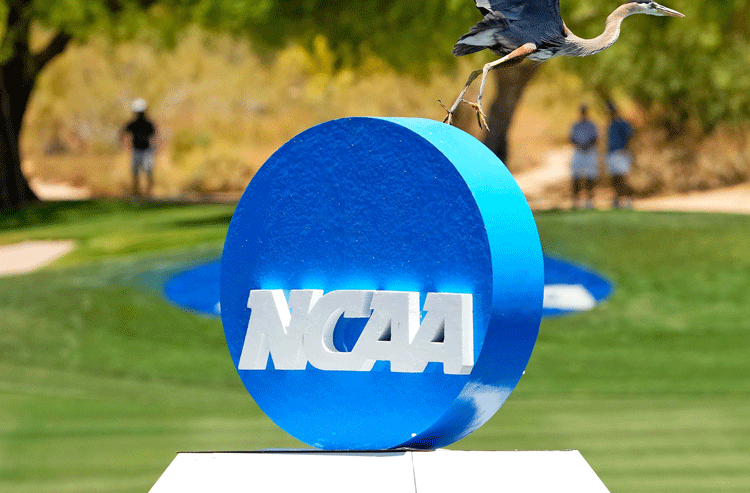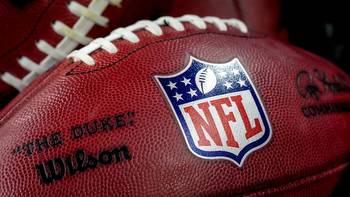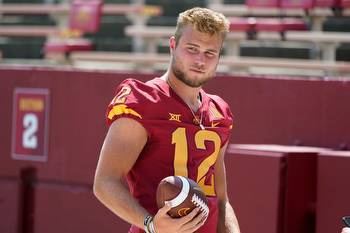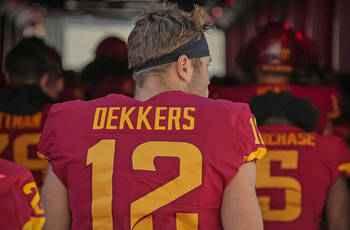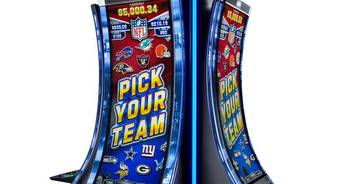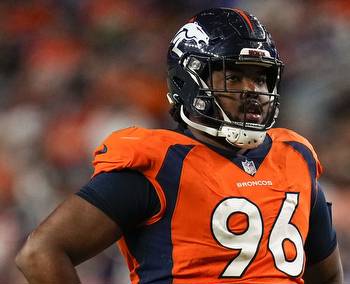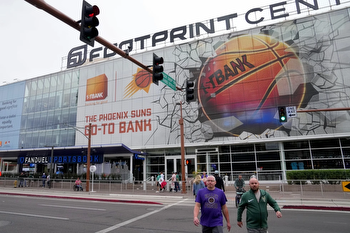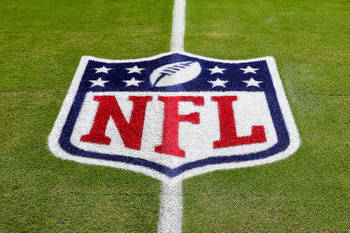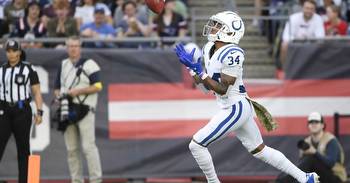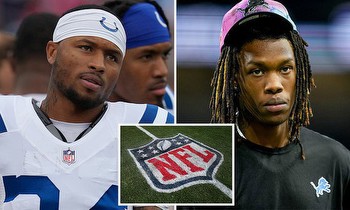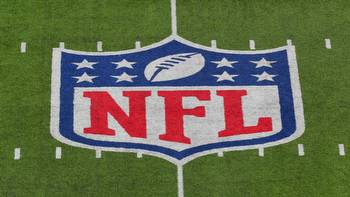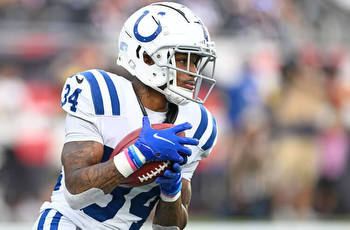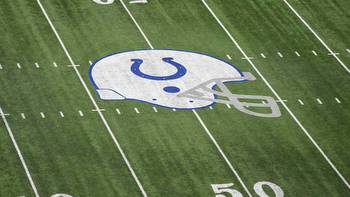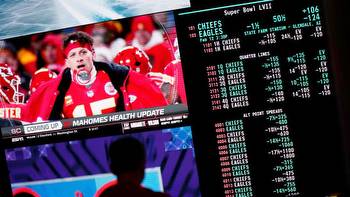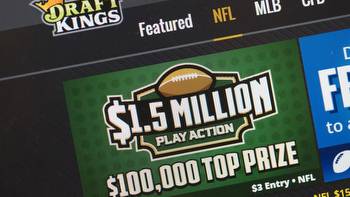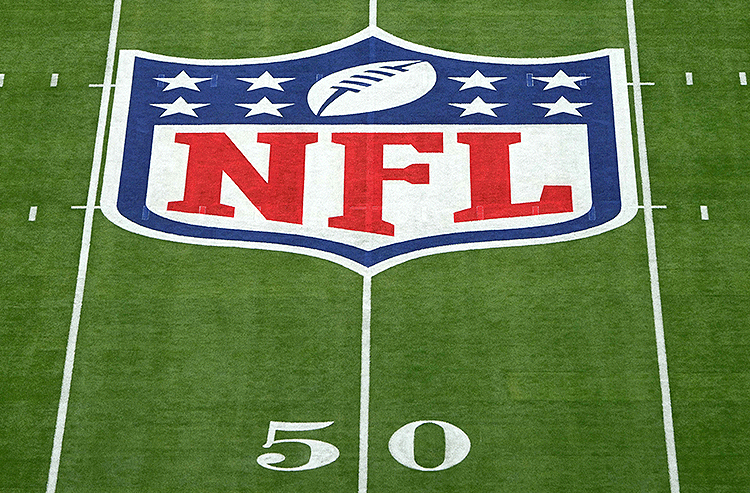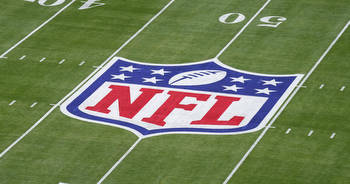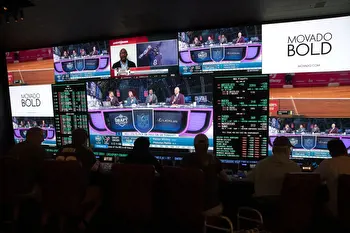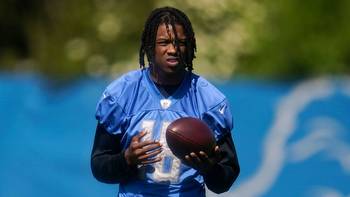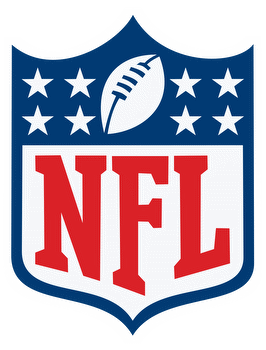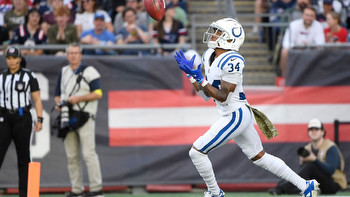Source: Colts Player Wagered Inside Facility, Placed Bets On Team
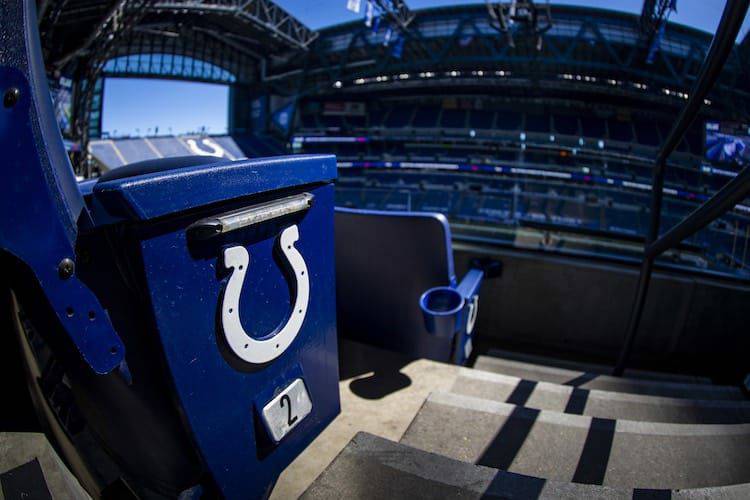
Amid the NFL’s ongoing investigation of a wave of potential violations of its sports betting policy, Sports Handle has learned that a player for the Indianapolis Colts is under investigation for what a source called “pervasive” wagering activities.
While the new allegations around the Colts appear to be “isolated to one player,” there is evidence the Colts player placed hundreds of wagers, the source told Sports Handle on the condition of anonymity. At least some of the wagers, the source told Sports Handle on Sunday, were placed on the Colts. On Monday evening, ESPN reported that the player in question is Colts defensive back and kick returner Isaiah Rodgers Sr., a 2020 sixth-round draft pick by the Colts.
This development comes not long after the NFL suspended five players in April for sports gambling violations. Of the five, four violated league policy by placing wagers last season as members of the Detroit Lions. Over Memorial Day weekend, The Athletic reported that the league is investigating another player on the Lions’ 2022 roster for a possible gambling violation.
The Colts player appears to have made the wagers through an account opened by an acquaintance, the source noted. Sports Handle has not been able to independently verify if the player placed any wagers on his team during the 2022 NFL season.
Most of the wagering occurred during 2022, with some of it extending into 2023. The player is still on the Colts’ roster, the source revealed.
Indiana Gaming Commission Deputy Director Jenny Reske told Sports Handle Monday that the IGC is looking into the potential violations by the Colts player.
“I can confirm that we have received information pertaining to this matter and we are following developments,” Reske said. “The IGC is not the lead agency because it involves violations of league policy. We will, however, continue to review information as it emerges to see if it requires any regulatory action.”
The NFL and NFL Players Association declined to comment when reached by Sports Handle Monday. The Colts did not respond to inquiries from Sports Handle, but via ESPN, said, “We are aware of the NFL’s investigation and will have no further comment at this time.”
NFL workplace rules
Since the Supreme Court’s historic PASPA decision in 2018, seven NFL players, an assistant coach, and an unidentified team employee have violated the league’s gambling policy, according to ESPN.com.
The most high-profile post-PASPA suspension was that of then-Atlanta Falcons wide receiver Calvin Ridley for betting on NFL games while away from the team on the non-football illness list in November 2021.
In April, former Lions safety C.J. Moore and former wide receiver Quintez Cephus each received one-year suspensions for placing wagers on NFL games. Two others, Lions wide receivers Jameson Williams and Stanley Berryhill, received six-game suspensions for placing wagers on non-NFL games from the team facility in Allen Park, Michigan.
The league has not seen evidence of game manipulation in any of the cases, NFL Vice President and General Manager of Sports Betting David Highhill told ESPN last month.
In most cases, NFL players are not prohibited from wagering on non-league sports or playing casino games, as long as the activity occurs outside a club or league facility. Williams, the Lions’ 2022 first-round pick from Alabama, is alleged to have wagered on college football from the team’s practice facility, the NFL Network reported. Had Williams placed the same wagers elsewhere, he would not have violated the NFL’s gambling policy.
Under league rules, NFL players are also prohibited from placing legal sports wagers in transit while conducting team or league business. If a Colts player places a three-leg NBA parlay from the tarmac of Indianapolis International Airport while traveling for work-related reasons, he would be in violation of league policy. An Indianapolis player would also run afoul of NFL rules if, for example, he placed a hockey wager from the team’s Denver hotel.
Gambling in the Workplace or While Working: NFL Personnel shall not engage in any form of Gambling in any club or League facility or venue (e.g., practice facility, stadium, team hotel, Draft or other League or club event); on any League or club charter or other transport; while
traveling on club or League business; or while making an endorsement or promotional appearance–Gambling policy for NFL personnel, 2022
Although the Colts player apparently placed a considerable number of wagers from inside the team’s practice facility, the source could not pinpoint an exact total. The source is also unsure whether the player made the majority of wagers with a single operator or spread the activity among multiple apps.
According to IGC regulations, a certificate holder and/or a vendor is required to take “commercially reasonable measures” to ensure that a sports wagering licensee does not accept wagers by athletes under contract with a participating sports governing body. A separate regulation, “IC 4-38-9-2: Security of data and information,” requires the same parties to take commercially reasonable measures to “maintain the security of wagering data, customer data, and other confidential information from unauthorized access and dissemination.”
The IGC has wide latitude for placing an individual on the commission’s blacklist if he knowingly violates state regulations, according to multiple industry sources. Former Cincinnati Bengals player Adam “Pacman” Jones was placed on the list after accepting a plea deal in connection with his 2019 arrest at an Indiana casino, an industry source told Sports Handle.
Flurry of recent violations
Over the last six weeks, there has been a confluence of betting incidents involving athletes, coaches, and other staff personnel in college and pro sports. On May 4, the University of Alabama fired Brad Bohannon after reports surfaced that the former coach maintained communications with an acquaintance while the bettor placed a wager on top-ranked LSU to defeat the Crimson Tide.
Days later, two Iowa schools — the University of Iowa and Iowa State University — disclosed separate investigations of alleged improper wagering by student athletes.
Last month, Major League Soccer acknowledged media reports that Colorado Rapids midfielder Max Alves allegedly pocketed $12,000 from a Brazilian match-fixing gang for deliberately receiving a yellow card.
The convergence of betting activity from team employees became a hot topic at last month’s SBC Summit North America, one of the world’s largest sports betting conferences.
“This is what happens when you take that activity out of the shadows, bring it out in the open, and put it in the regulated marketplace,” said Casey Clark, senior vice president at the American Gaming Association, in a May 10 interview with Sports Handle. “The greatest testament that the legal market is working is that we’re actually finding that these kind of things are happening.”
No prohibited lists
The Colts resume offseason training activities on Tuesday for a four-day period concluding on Friday. The team will then have a three-day mandatory minicamp June 13-15 before training camp begins next month.
The Colts, who went 4-12-1 in the 2022 season, open the 2023 season Sept. 10 at home against the Jacksonville Jaguars. As of Monday, the Colts have odds of +350 at FanDuel to make the playoffs for the first time since 2020-21. Only three teams — the Raiders, Texans, and Cardinals — have steeper odds to qualify for the postseason.
Through sophisticated geolocation technology, bettor tracking, and thorough integrity monitoring, sports governing bodies are able to detect suspicious wagering activity more readily than ever. Still, there appear to be some enforcement gaps. For one, no states have mandates that require leagues to provide state regulators with exclusion lists containing prohibited players. At present, the NBA is the only league that provides such a list, Iowa Racing and Gaming Commission Administrator Brian Ohorilko told Sports Handle last month.
In the case of the Colts player, even if an integrity monitor had the player’s personal identifiable information, it likely would not have mattered because the bettor appeared to use someone else’s account. Indiana regulations prohibit proxy betting and require that an account be funded by the person opening the account.
Additional reporting by Jill R. Dorson

